CARPA4: Vision Statement
The Performing Arts Research Centre (Tutke) at the Theatre Academy, University of the Arts Helsinki welcomes artistic researchers at doctoral and post-doctoral levels to take part in the fourth biannual colloquium on artistic research in performing arts:
The Non-Human and the Inhuman in Performing Arts: Bodies, Organisms and Objects in Conflict
11th −13th of June 2015
The fourth Colloquium on Artistic Research in Performing Arts (CARPA4) asks how different practices and techniques in performing arts face the contemporary critique of anthropocentrism. How do they participate in renegotiation on the role and the limits of the human and what kind of critique does the involvement with the non-human entail?
Vision Statement
Since the end of the past century, the growing consciousness of the limits of the planet and the biosphere has highlighted the need to widen the scope of our cultural understanding towards the non-human: animals, plants and the material processes of living organisms other organisms, as well as non-organic and inanimate agents, objects, machines or “hyper-objects”. Academically, generic terms for research focusing on the non-human relation have been “post-humanism”, “new materialism” or “speculative realism”, but this research takes place simultaneously in various fields and is not necessarily unified field. What is common to all of these orientations is their attempt to make us better aware of the ways the existence of human culture is interwoven with different kinds of technological, material, biological, geological, meteorological or even cosmological processes. The revelation of the complexity and interdependence of these processes challenges the everyday logic and the principles of common ethical, economic and political argumentation.
According to the working hypothesis of CARPA4 in performing arts, this type of questioning is reaching a certain critical limit, after which it starts to encounter a new kind of resistance. The reason to this is not only the obvious fact that these arts are to a large extent dependent on the performing human bodies and their material and immaterial reincarnations. It is also true that in the post-Holocaust and post-Hiroshima era, the artistic experimentation with corporeality in theatre, dance and performance art has been extensive. This experimentation has stretched out towards the non-human levels of existence and experience, but it has equally often been a witness to states that should rather be called inhuman. We ask, to what extent does the inhuman constitute a limit to non-human aspirations? What significance has the “inhuman” in the post-humanist world?
Human bodies which previously may have been considered either as objects or as means of liberation, today constitute a source of resistance, the political or ethical meaning of which nonetheless remains uncertain or obscure. Are not the immigrant bodies swarming at the gates of Western civilization or packed in refugee camps treated in an inhuman way, as “non-“ or “less-than-human” creatures? Let alone the bodies killed, tortured and humiliated in numerous conflicts all around the world? “Humanistic” values are not a prerequisite for considering the state of these bodies as “inhuman”. But how can this ethical stance or experience be connected with the aforementioned claims concerning the non-human? Why are not all “peoploids” living under the (Western) criteria of humanity considered as the heralds of the new non-human world order? Is there finally any difference between the inhuman and the non-human in the neo-liberalist world founded on the accelerated circulation of labor, production, and capital?
The colloquium approaches its topic area without specific disciplinary framings, collaboratively, and performatively, in an attempt to support the fruitful meeting of various points of view. It seeks common points of contact, resonating surfaces, and rhythmic interference between its heterogeneous but constituent parts.
CARPA4 reflects on performing practices from the point of view of their non-human factors. We ask:
-
Whether performance is no longer considered a typically human behavior, expressing and reflecting the intentions and needs of human beings, but rather a point of encounter and a collaborative relation between heterogeneous elements, components or materials, like bodies, organisms and objects?
-
How can human performers find their place within performative arrangements, where the logic no longer serves human purposes? What to do with bodies that no longer are “mine” or “living”?
-
In which ways can different life forms in their wide diversity enter the scene of performing arts and deconstruct this scene?
-
What kind of objects does a performance consist of? How can a performance create, liberate, or reunite objects, beyond “object theatre”?
-
How is the question of the inhuman defined and resolved in each case?
It is in the performing body that the ecological question of the non-human intersects the ethical, political, pedagogical and juridical questions concerning the inhuman. But how should this intersection be understood and articulated? What consequences does it have for our ways of making, teaching and enjoying performing arts?
